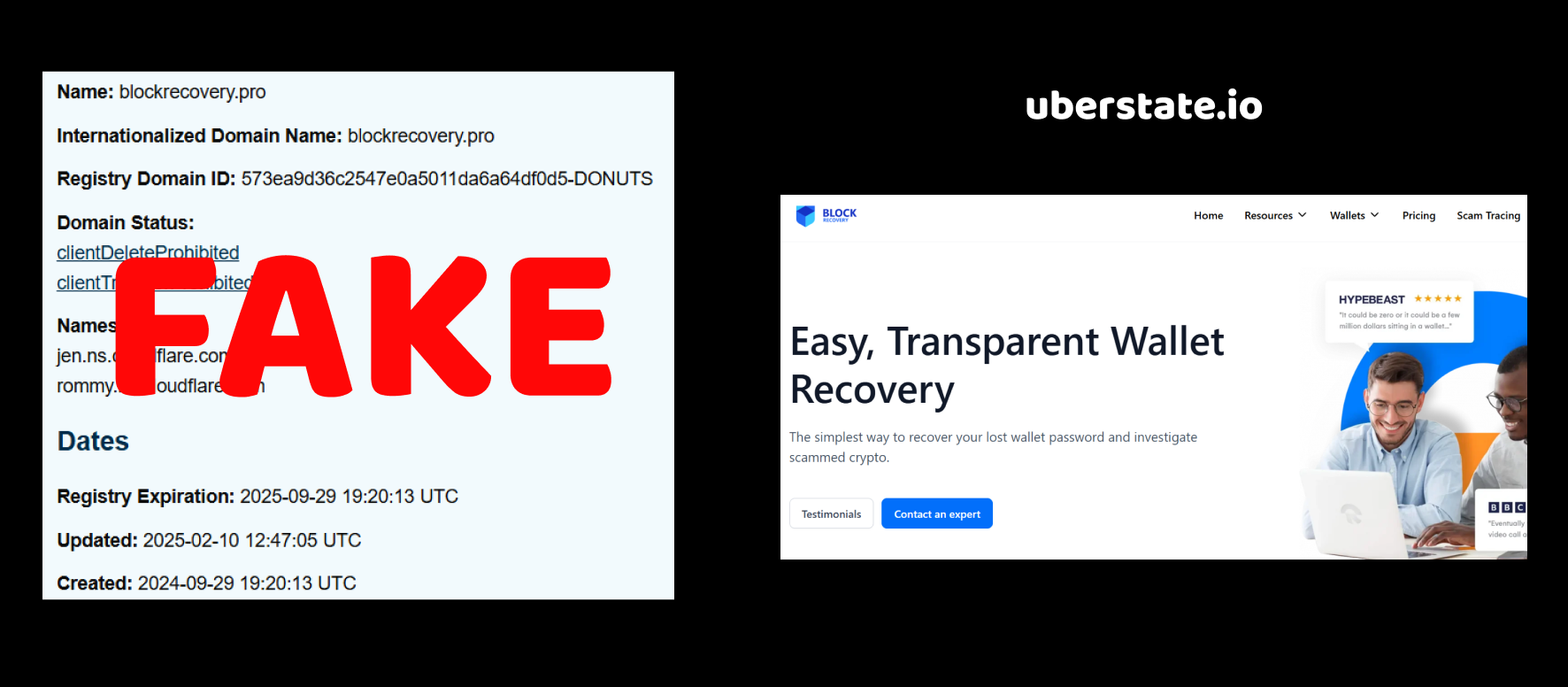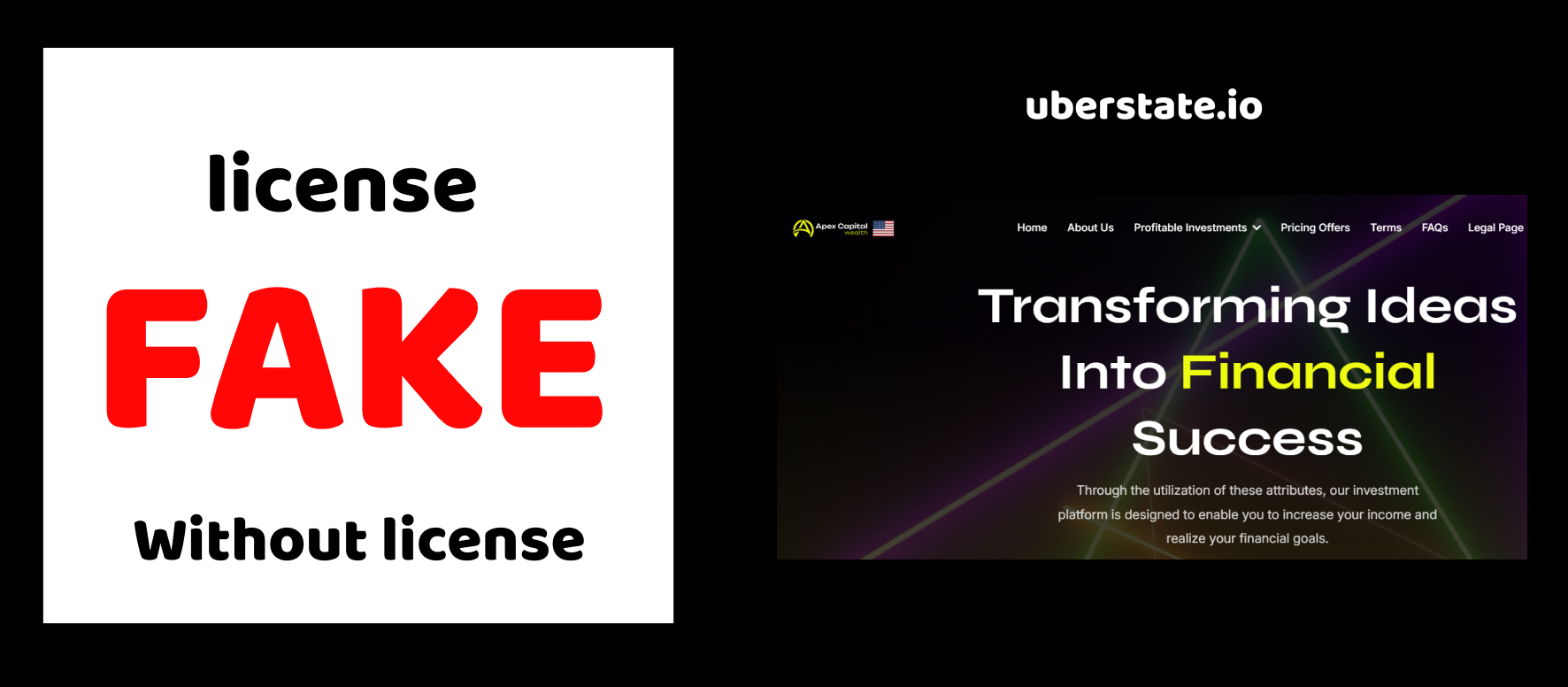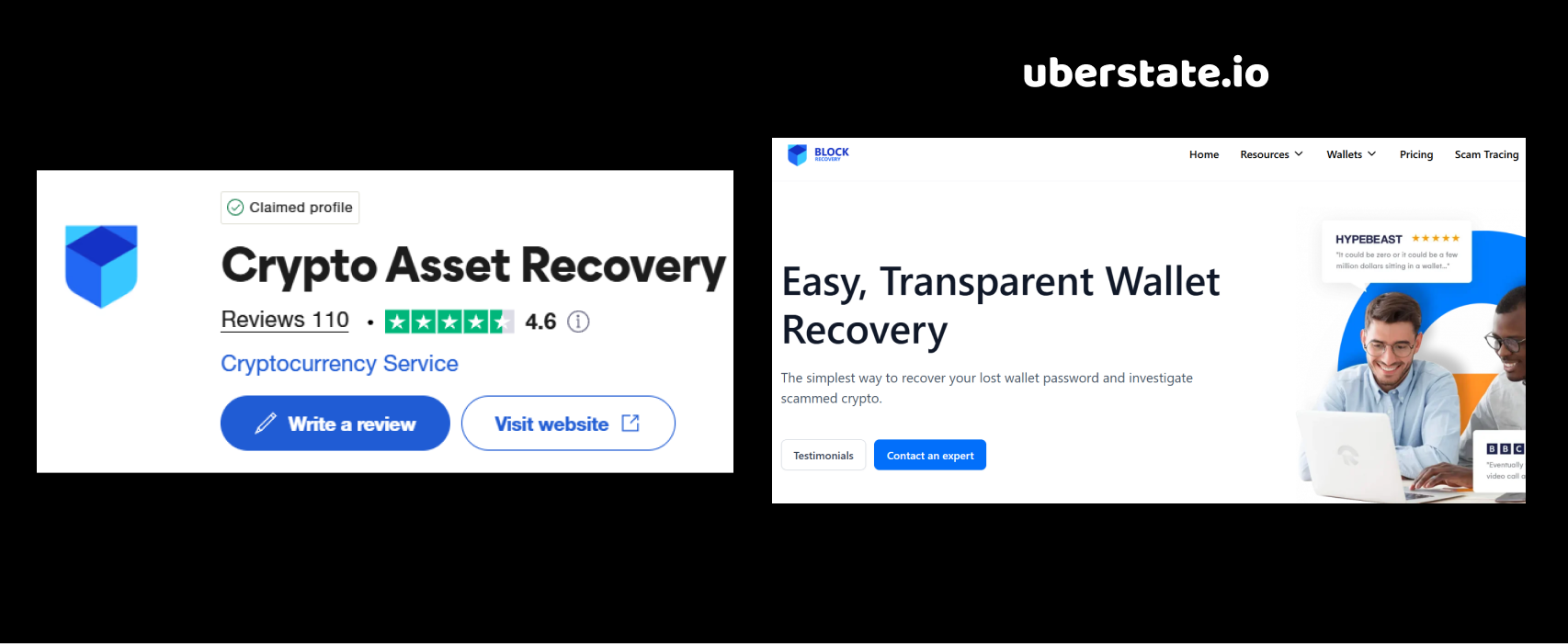Block Recovery Review – Too Good to Be True?

The internet is flooded with companies promising to help you recover money lost to scams. And Block Recovery is one of them. At first glance, they look clean, professional, and even convincing. Their website tells a story of justice, financial recovery, and second chances. But we’ve seen this movie before — and it rarely ends well.
That’s why we decided to take a deeper look and run a full Block Recovery review.
Because here’s the thing: scammers don’t always dress like scammers. Sometimes, they wrap themselves in the language of trust and hope — especially when they know their target is already vulnerable. And when we started pulling on the threads behind Block Recovery’s operation… let’s just say the fabric didn’t hold up.
So, is this just another shady website in disguise?
Let’s break it down, piece by piece.
| Parameter | Details |
| Broker Name | Block Recovery |
| Leverage | 1:100 |
| Account Types | Not specified |
| Support Email | [email protected] |
| Phone Number | Not listed |
| Messenger Contact | |
| Platform | Web |
| Country Claimed | UK |
| Domain Registration | February 10, 2025 |
Argument 1: Domain registration date – Block Recovery
At first glance, Block Recovery tries hard to look like a solid and established player. They throw around big promises, polished website visuals, and generic “trust us” language. But when we decided to dig into the technical details, things quickly started to fall apart.
Here’s the issue: according to domain records, the website for Block Recovery was registered on February 10, 2025.
Let that sink in.
Despite positioning themselves as if they’ve been around for years — maybe even hinting at some kind of experience in the “asset recovery” or “crypto scam help” space — the truth is, their domain was created just recently. No past reputation. No history. Just a domain born out of nowhere in 2025.
Why is that a red flag?
Because real, trustworthy companies don’t just show up out of thin air. Reputable recovery services, especially those that claim to handle sensitive financial matters, typically have a track record, press mentions, client stories, or even archived versions of their sites. But Block Recovery? None of that. It’s like they just flipped the switch and hoped no one would notice how new they are.
And here’s a thought: why would a legitimate company hide its short lifespan unless it had something to cover up?
Worse still, they’ve had no time to build any real reputation, and yet they’re already out there making bold claims about helping victims of scams. Isn’t that ironic?
So, before trusting a company that popped up just weeks or months ago, ask yourself — would you hand over sensitive information to someone who literally just showed up?

Argument 2: No License – Block Recovery
One of the most obvious indicators that something’s off with Block Recovery is the complete absence of a license.
We’re not talking about some shady offshore document or a fake license from a made-up “regulator” — there’s literally nothing. No mention of registration. No regulator ID. No legal information. Not even a single attempt to fake credibility. Just… silence.
Now, ask yourself this:
Why would any legitimate financial service hide this kind of information?
Especially if their entire pitch is helping people recover money from scams. You’d expect them to be the first ones to proudly show their credentials. But once again, the creators of Block Recovery chose to skip that part — and that says a lot.
It gets worse. Without a license, this operation is completely unregulated. There’s no oversight. No one to file a complaint to. No legal safety net if something goes wrong. You’re simply on your own.
And here’s the irony: a company that claims to fight scams… is itself operating outside the law.
Anyone who truly wants to help scam victims would do the opposite — they’d prove their legitimacy, not hide it. But in the case of Block Recovery, the silence around their legal status speaks volumes.

Argument 3: Trustpilot Reviews – Block Recovery
At first glance, Block Recovery seems to have a solid rating on Trustpilot — 4.6 out of 5. Sounds decent, right?
But let’s not get fooled by the numbers alone. Because once we took a closer look, that shiny rating started to lose its glow fast.
Here’s what we noticed: out of 110 total comments, only 6 are marked as “good”. That’s already strange. If this service is truly trustworthy and helpful — where are all the genuine positive experiences?
And then we read the actual reviews.
They all sound… oddly similar. Same structure. Same level of enthusiasm. Same vague language like “great service,” “very helpful,” “thank you so much.” No real detail, no personal stories, no specifics about what was recovered, how long it took, or who helped them. It’s like they were written by the same person wearing different hats.
Let’s be honest:
Real users don’t write like that.
People who’ve gone through the emotional rollercoaster of being scammed and then (allegedly) recovering their money usually share details. They name names. They talk about timelines. They express real emotion — not just generic praise that feels mass-produced.
So the question is — who’s writing these reviews?
It wouldn’t be the first time scammers tried to inflate their reputation with fake testimonials. And the math doesn’t add up either. A high rating, barely any positive comments, and a suspicious pattern in the writing style… doesn’t that feel off?
And if Block Recovery’s service was actually effective, you’d expect a flood of organic, grateful feedback. But instead, we get a handful of templated compliments and a mysteriously high score.

Final Verdict – Can You Trust Block Recovery?
After peeling back the layers of Block Recovery, the picture becomes painfully clear.
A domain that was created just recently in February 2025. No trace of prior activity, no archived versions of the site, no history to rely on. They appeared out of nowhere — and yet expect people to trust them with extremely sensitive financial matters.
Then there’s the license — or rather, the complete lack of one. Not even a fake certificate from a pretend regulator. Just nothing. They operate in total legal shadow. Which means if something goes wrong, you’re out of options. No legal protection. No refund. No accountability.
And let’s not forget the highly suspicious reviews. A glowing Trustpilot score of 4.6, but only 6 genuinely positive reviews out of 110 total comments? That math alone raises eyebrows. The reviews themselves feel copy-pasted, soulless, and clearly artificial. They’re trying to build trust — but doing it with fluff.
We’ve seen this pattern far too many times. A company claims to help victims of scams, but uses that narrative as cover to pull off another scam. It’s predatory, plain and simple. Because who’s more vulnerable than someone already scammed, desperate for help?
Block Recovery might talk the talk — but when it comes to walking the walk, they trip on every step.
So here’s the bottom line:
Would you trust a faceless, unlicensed, newborn website with no track record and a suspiciously polished reputation to handle your money?
We wouldn’t either.






